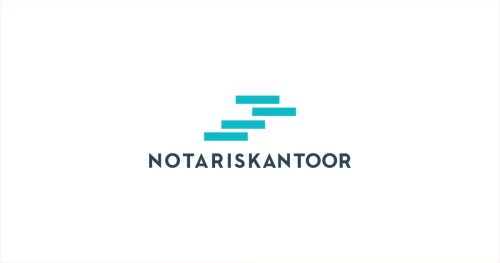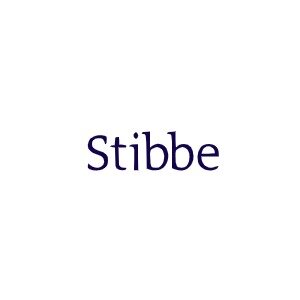Best International Trade Law Lawyers in Brussels
Share your needs with us, get contacted by law firms.
Free. Takes 2 min.
List of the best lawyers in Brussels, Belgium
About International Trade Law in Brussels, Belgium
International Trade Law in Brussels, Belgium, is a dynamic field that encompasses various regulations governing the exchange of goods, services, and capital between different countries. As the capital of the European Union, Brussels hosts numerous international institutions, making it a central hub for trade-related legal affairs. Businesses operating in Brussels are subject to both EU and Belgian trade laws, which include customs regulations, trade agreements, and dispute resolution processes. This legal framework is designed to facilitate fair and efficient international trade while protecting the local economy and complying with global trade obligations.
Why You May Need a Lawyer
There are multiple instances where seeking legal advice in International Trade Law could be essential:
- Negotiating and drafting international sales contracts.
- Understanding and complying with customs requirements and tariffs.
- Resolving disputes arising from international transactions.
- Navigating corporate regulations when entering new markets.
- Adhering to various trade sanctions and embargoes.
- Understanding the implications of trade agreements like CETA or Brexit-related regulations.
- Managing intellectual property rights across borders.
- Handling anti-dumping and countervailing duty investigations.
Local Laws Overview
Belgium operates under a complex legal system influenced by both EU and national laws. In international trade, key considerations include:
- Customs Procedures: The Belgian customs code aligns with the EU's Union Customs Code, applying uniform tariff nomenclature and import/export regulations.
- Free Trade Agreements: With Brussels as an EU hub, numerous free trade agreements apply, requiring an understanding of preferential treatment and origin rules.
- Dispute Resolution: Options are available through arbitration under Belgian law, EU mechanisms, or international bodies like the ICC.
- Trade Compliance: Businesses must adhere to regulations surrounding import/export licenses and dual-use goods.
- Intellectual Property: Belgium protects IP through national laws and EU regulations, vital for safeguarding business innovations and brands.
Frequently Asked Questions
What are the key documents needed for customs clearance in Brussels?
Key documents include the import/export declaration, commercial invoice, packing list, certificates of origin, and any necessary licenses or permits.
How does VAT affect international trade in Brussels?
VAT applies to goods and services, with specific rules for intra-EU transactions and exports. Understanding VAT registration and compliance is crucial for businesses.
What is the role of the European Union in International Trade Law applicable to Brussels?
The EU sets trade policies affecting tariffs, trade agreements, and regulations, with Belgium implementing these laws through national legislation.
Can a non-EU company establish a business in Brussels to facilitate trade?
Yes, non-EU companies can establish a branch or subsidiary in Brussels, subject to corporate and trade regulations.
What is the process for resolving trade disputes in Brussels?
Trade disputes can be resolved through negotiation, arbitration, or litigation, depending on contractual agreements and the nature of the dispute.
Are there specific measures for protecting intellectual property in international trade?
Yes, Belgium enforces IP protection laws, and businesses can register patents, trademarks, and copyrights to safeguard their assets.
How do Brexit-related changes impact trade with the UK from Brussels?
Brexit has introduced new customs checks, VAT rules, and regulatory compliance requirements for trading goods with the UK.
What are the penalties for non-compliance with international trade laws in Brussels?
Non-compliance can result in fines, legal actions, and loss of trading privileges under Belgian and EU regulations.
What support is available for small businesses looking to expand internationally?
Various government and EU programs offer guidance, funding, and resources to help small businesses navigate international markets.
How does anti-dumping duty work in Belgium?
Anti-dumping duties are applied to prevent unfair competition from overseas markets, ensuring local industries are not adversely impacted.
Additional Resources
For further assistance, consider exploring the following resources:
- Flanders Investment & Trade Agency (FIT) for guidance on entering international markets.
- Belgium's Federal Public Service Economy for trade regulations and compliance information.
- The European Commission's website for EU trade policies and agreements.
- The World Trade Organization (WTO) for global trade practices and dispute mechanisms.
- Consult with international trade law firms and local chambers of commerce for personalized advice.
Next Steps
If you need legal assistance, consider the following steps:
- Identify your specific legal needs relating to international trade.
- Research and select a lawyer or law firm specializing in International Trade Law in Brussels.
- Gather all relevant documentation and information about your trade activities.
- Schedule a consultation to discuss your case, potential legal strategies, and costs.
- Maintain ongoing communication with your legal advisor to ensure compliance and address any issues proactively.
Lawzana helps you find the best lawyers and law firms in Brussels through a curated and pre-screened list of qualified legal professionals. Our platform offers rankings and detailed profiles of attorneys and law firms, allowing you to compare based on practice areas, including International Trade Law, experience, and client feedback.
Each profile includes a description of the firm's areas of practice, client reviews, team members and partners, year of establishment, spoken languages, office locations, contact information, social media presence, and any published articles or resources. Most firms on our platform speak English and are experienced in both local and international legal matters.
Get a quote from top-rated law firms in Brussels, Belgium — quickly, securely, and without unnecessary hassle.
Disclaimer:
The information provided on this page is for general informational purposes only and does not constitute legal advice. While we strive to ensure the accuracy and relevance of the content, legal information may change over time, and interpretations of the law can vary. You should always consult with a qualified legal professional for advice specific to your situation.
We disclaim all liability for actions taken or not taken based on the content of this page. If you believe any information is incorrect or outdated, please contact us, and we will review and update it where appropriate.















